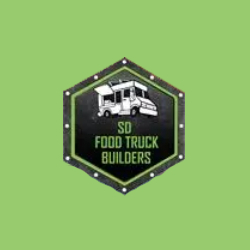Food trucks have taken the culinary world by storm, offering a unique and mobile dining experience. If you’re considering joining the ranks of food truck entrepreneurs or expanding your existing fleet, you’ll be faced with an important decision: whether to invest in a new food truck for sale or opt for a used one. In this article, we’ll explore the pros and cons of both options to help you make an informed choice that suits your business needs and budget.
Pros:
Warranty and Reliability: One of the primary advantages of buying a new food truck is the warranty. New trucks typically come with manufacturer warranties that cover repairs and replacements for a certain period. This can give you peace of mind and reduce unexpected maintenance costs.
Customization: New food trucks provide an opportunity to design and customize your mobile kitchen to your exact specifications. You can create a layout and aesthetic that aligns perfectly with your brand and menu.
Advanced Technology: Newer food trucks often come equipped with the latest kitchen equipment and technology, which can enhance efficiency and food quality. This may include energy-efficient appliances and digital payment systems.
Compliance: New food trucks are more likely to meet the latest safety and sanitation regulations, which is crucial for avoiding potential legal issues.
Cons:
Higher Initial Cost: The most significant drawback of purchasing a new food truck is the higher upfront cost. New vehicles and customizations can be expensive, potentially stretching your budget.
Pros:
Cost-Effective: Used food trucks are generally more affordable than new ones. This can be a great option if you’re starting your food truck business on a tight budget.
Immediate Availability: Since used trucks are readily available, you can get your business up and running more quickly than if you were to order a new truck and wait for its construction.
Tested Performance: Many used food trucks have already proven their reliability and performance in the field, reducing the risk of unexpected issues.
Room for Negotiation: When dealing with private sellers or dealers, there may be room for negotiation on the price, allowing you to secure a better deal.
Cons:
Limited Customization: Used food trucks come with pre-existing layouts and equipment, limiting your ability to create a tailored kitchen design. You might need to invest in modifications to meet your specific requirements.
Uncertainty: Since they’ve been used, there may be hidden wear and tear or maintenance issues that aren’t immediately evident. It’s crucial to thoroughly inspect the vehicle before purchase.
Potentially Outdated Equipment: Some used trucks may have older kitchen equipment, which may not be as energy-efficient or effective as newer technology.
Conclusion:
Choosing between a new food truck for sale and a used one ultimately depends on your business’s specific needs and financial situation. If you have the budget for a new truck and desire complete customization, a new food truck may be the way to go. However, if cost-efficiency and quick availability are your priorities, a used food truck can be a practical choice.
Whichever option you choose, it’s vital to do your due diligence. Inspect used trucks carefully, inquire about their maintenance history, and consider having a professional mechanic evaluate the vehicle. And if you decide on a new food truck, work closely with the manufacturer to design a mobile kitchen that aligns perfectly with your culinary vision. In the end, a well-thought-out decision will set you on the path to food truck success.

